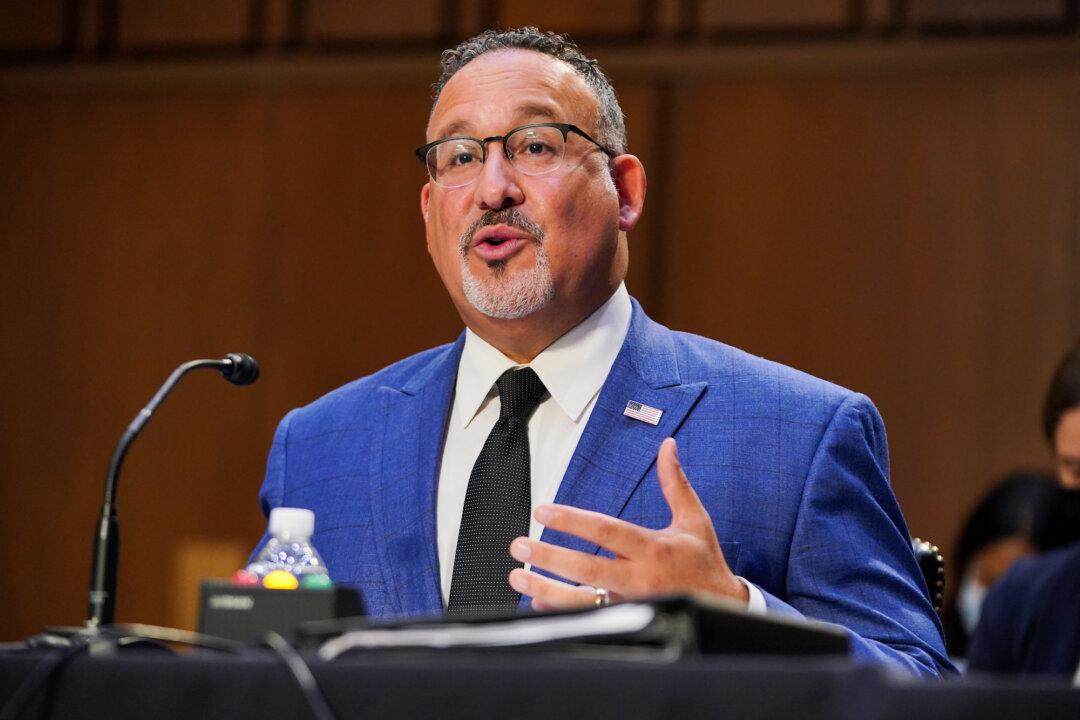U.S. Secretary of Education Miguel Cardona refused to say at a congressional hearing that parents are the “primary” stakeholders in their children’s education.
Near the end of his Sept. 30 hearing before the Senate Committee on Health, Education, Labor, and Pensions, Cardona was asked by Sen. Mike Braun (R-Ind.) about what he thinks of parents who want to be more involved in the education of their children after the first school year amid the pandemic.





